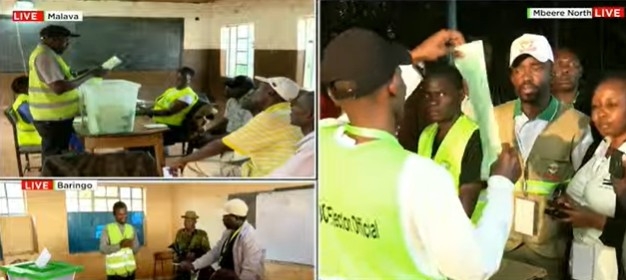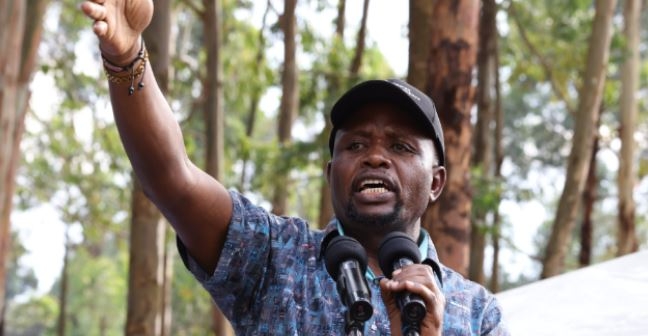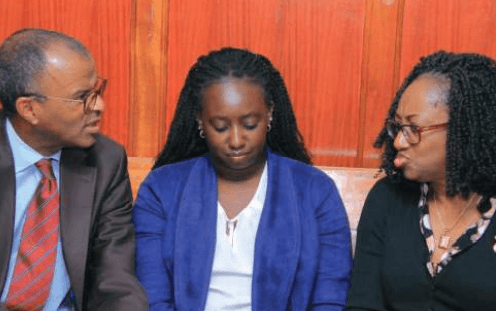MPs from within the Nairobi metropolitan area could soon get mileage allowances if a proposed law gives the Parliamentary Service Commission powers to determine lawmakers’ perks.
Only MPs making a round trip of 350 kilometres to their constituencies are entitled to reimbursement for monies they spend on their travel.
“A Member of Parliament shall be reimbursed a claimable mileage of one return journey per week from the National Assembly (Nairobi) to his/her constituency office at the rate of Sh116.63 per kilometre, based on a car of engine capacity not exceeding 3,000cc,” the Salaries and Remuneration Commission said in a gazette notice setting perks for MPs.
Those who cover a maximum of 700 kilometres are entitled to a monthly claim of up to Sh353,778, while those who go beyond 351 kilometres are paid based on the actual distance – at Sh116.63 per kilometre.
“The Parliamentary Service Commission shall ensure that Members of Parliament are reimbursed within the maximum actual distance from the National Assembly (Nairobi) to respective constituency offices,” SRC instructed.
As a result of the limitations, MPs [about 42] representing constituencies in Nairobi, Kiambu, parts of Kajiado, Machakos, and parts of Muranga counties have been unable to draw mileage claims.
The MPs now want the law changed to grant the PSC power to determine their perks.
While the agency is in charge of the parliamentary service, MPs’ pay, being state officers, is set by the SRC, a situation that has occasioned a push and shove for years.
Some of the affected MPs highlighted discrimination in the payment of mileage, saying they equally spend when going about activities in their constituencies.
A government-sponsored bill provides that the PSC can determine the transport reimbursements for MPs.
Plenary sitting allowance is another bone of contention with SRC, which MPs seek to address using the proposed law. SRC banned plenary sitting allowances.
“The Commission shall review and determine the rates of reimbursement for travel by motor vehicle for Members, in accordance with international best practice,” the proposed law reads.
“The Commission shall review and determine the rates of reimbursement of the daily subsistence costs expended by members and staff of Parliament in the performance of their duties.”
The omnibus bill is extending the powers to the Judicial Service Commission as well, to determine travel reimbursements and subsistence allowances for judges.
“The Commission (JSC) shall review and determine the nature of transport facilitation and the rates of reimbursement the daily subsistence costs expended by judges, judicial officers and staff of the Judiciary in the performance of their duties,” the Statute Law (Miscellaneous Amendments) Bill (No67) of 2023 reads.
Kilifi North MP Owen Baya said, “Initially, these rates were set by the Ministry of Roads, Transport and Public Works, Salaries and Remuneration Commission (SRC), and other bodies. However, we will bring back this function to PSC.”
“JSC should now look at transport facilitation and rates of daily subsistence allowance, which the SRC had taken away. We want to restore this to the JSC.”
For the MPs, the PSC and JSC are independent bodies that should be allowed to function as such “without necessarily having interference from SRC.”
The lawmakers hold that SRC has been wrongfully interpreting Article 230(4) of the Constitution to say it has the mandate to facilitate Parliament and the Judiciary.
The Supreme Court made a pronouncement that Article 230 “must be read alongside other provisions that provide the same powers to PSC and JSC.”
“We have conflict with SRC every time because it wants to set limits for Parliament and JSC. This Bill will give these two bodies an opportunity to run away from the conflict with SRC all the time,” Baya explained.
Samburu West MP Naisula Lesuuda said she had heard of complaints by her colleagues about the lack of equity in the payment of mileage.
“I agree that those who come from areas near Nairobi should benefit. It should not be an issue of some people benefiting while others do not. We should look at this matter objectively, so that those who have not been benefiting can benefit,” she said.
Majority leader Kimani Ichung’wah said it was time MPs in the city and its neighbourhood were equally compensated.
He said MPs, especially those in Nairobi, make several trips to their constituencies even on the days Parliament has scheduled business.
Using the example of Dagoretti North MP Beatrice Elachi, Ichung’wah said it was possible the lawmaker was making trips in between parliamentary sittings.
He argued that Parliament is an independent arm of government “just like the Judiciary.’
“Therefore, we must not be treated any differently. If the Judicial Service Commission takes care of the well-being of the members of the Judiciary and their staff, we also need to align our Parliamentary Service Act so that our own Commission takes care of our well-being.
"You need not have any apologies having a Commission to take care of your well-being even those who benefit from mileage,” Ichung’wah said.
Elachi backed the sentiments.
“The work we do in Nairobi is not a joke. In Nairobi we do not sleep. We are 24/7 in our constituencies day and night. When we were hit by floods, we had to be in the constituency all the time.”
Ol Jorok MP Michael Muchira said, “There is no way you would have a commission and then again purport to regulate the sittings of Parliament.”
Tharaka MP Gitonga Murugara said the change, if adopted, would help better the welfare of MPs and staff.
“Some [of us] have to travel long distances from their constituencies to the central House of Parliament here in Nairobi. They encounter hardships. They do not know where to sleep or put up. Possibly, they do not know where to spend their evenings. This is where the Parliamentary Service Commission comes in,” he said.
“It is now being empowered to ensure that, away from other bodies, it is able to take care of members’ welfare. This is very important. The same applies to judges and members of staff of the Judiciary,” Murugara, who is also Justice Committee chairman, said.
The bill is at the second reading stage and is lined up for a decision of the whole House by the end of this month.

















